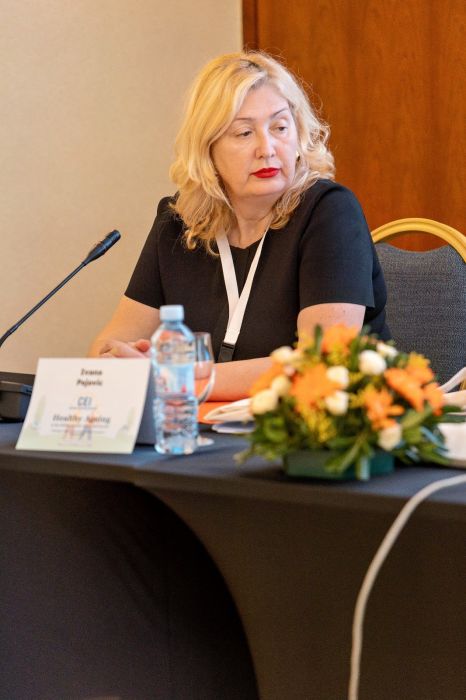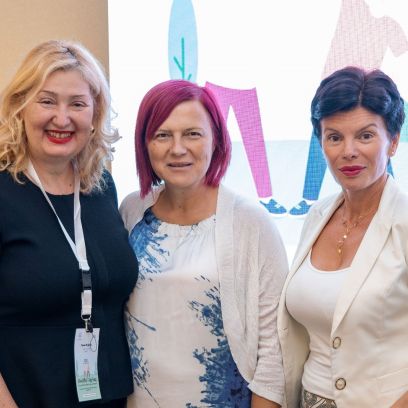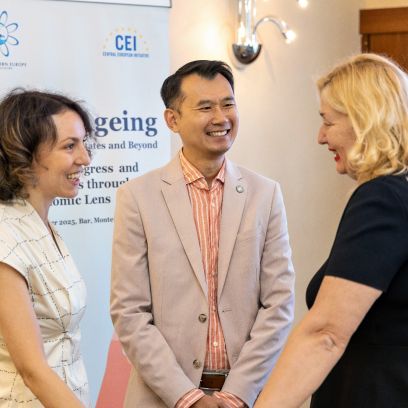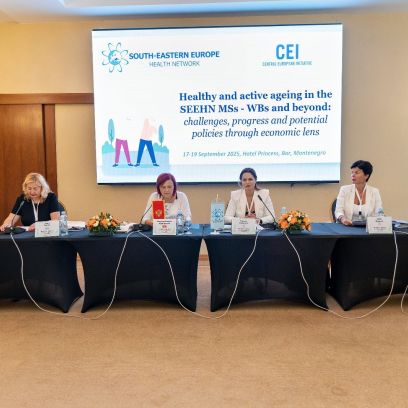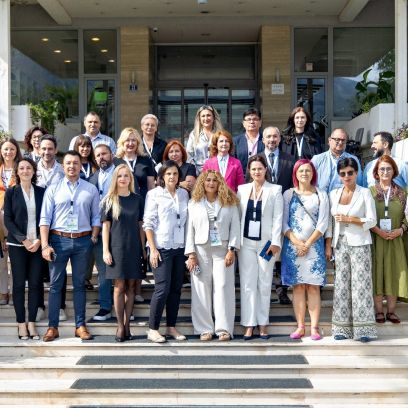On 17–19 September 2025, Deputy Secretary General Ivana Pejović participated in the regional workshop in Bar, Montenegro, organised by the South-Eastern Europe Health Network (SEEHN) Secretariat. The event brought together representatives from ministries of health and public institutions, as well as technical experts, to discuss how to translate demographic analysis into actionable policy options tailored to local contexts, and to consider the impact of demographic changes on health financing and service delivery.
The three-day workshop explored the sustainability gap linked to population ageing and declining birth rates, as well as the policy choices available to strengthen the resilience and equity of health systems. Sessions combined analytical input and country case studies with the practical application of the Population Ageing Financial Sustainability Gap for Health Systems (PASH) Simulator, a tool developed by the European Observatory on Health Systems and Policies and the WHO Kobe Centre, to model future expenditure requirements and evaluate reform proposals. A half-day study visit has complemented the in-room discussions.
Undoubtedly, the ageing population does affect our society, which calls for concrete actions to mitigate these effects and ensure efficient, resilient and sustainable health systems allowing universal access to primary health services. This process requires a multi-sectoral approach, that includes prevention, health promotion, primary health care organisation, monitoring, policy support and above all cooperation across borders, that enables mutual learning, building synergies and planning.
In her remarks, DSG Pejovic, emphasised that cooperation is a driver of reform:
Regional cooperation is our main tool to foster European integration and sustainable development with a specific focus on green growth and just societies. (…) Over the years, this cooperation has led to important ties and new synergies with important partners like WHO and SEEHN, on important topics among which mental health, access to medicines, NCDs, healthy lifestyles and habits. (…) This phenomenon brings along a set of needs and challenges, which require coordinated and multidisciplinary approach to meet the needs of our citizens. This societal challenge is also an opportunity to put in place our knowledge, competences and innovation technology to ensure healthy and active life.
Participants developed regional and national recommendations on revenue generation, expenditure management, and long-term care. These recommendations will inform ongoing reforms and peer learning across the South-Eastern Europe region as well as contribute to the WHO European Strategy Ageing is Living.

